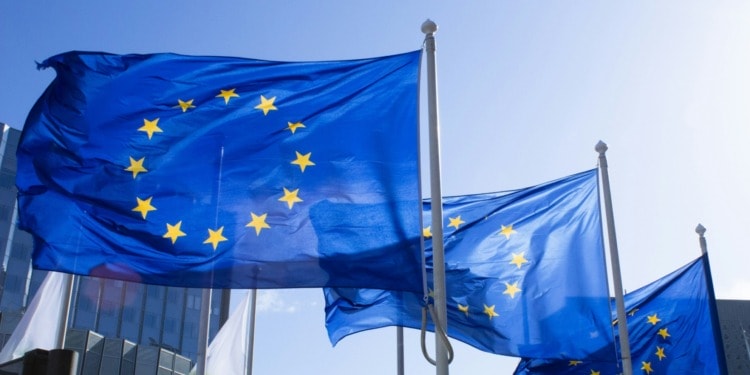The major policy shifts introduced over the past week have significantly modified The European Union’s approach towards environmental, social, and governance (ESG) regulation standards. On February 26, 2025, the European Commission introduced the so-called “Omnibus Package,” an initiative to simplify corporate sustainability reporting requirements. These changes have sparked intense debate over their potential to weaken the EU’s ambitious sustainability agenda.
The Omnibus Package: A double-edged sword
The Omnibus Package proposes significant amendments to three key ESG regulatory frameworks:
- The Corporate Sustainability Reporting Directive (CSRD)
- The Corporate Sustainability Due Diligence Directive (CSDDD)
- The EU Taxonomy Regulation
Through the Omnibus Package, sustainability reporting obligations are expected to be scaled down by 80%. This means that only large companies exceeding 1,000 employees would be required to comply with the CSRD and EU Taxonomy standards. However, the original CSRD framework covered around 50,000 companies across the EU. Other key requirements, such as the reporting timeline companies must comply with, have also been reduced.
The weakening of the CSDDD is an important aspect of the Omnibus Package. Originally, the CSDDD required large companies to execute thorough due diligence on human rights and environmental risk assessments. On the other hand, the proposed changes would narrow down obligations to direct suppliers only and not the entire supply chain. The compliance cycle would also increase from annual assessments to every five years. Critics have opposed the initiative by the European Commission as they understand that these modifications would essentially weaken accountability and transparency within large companies.
Before introducing the Omnibus Package, European Commission Executive Vice-President Valdis Dombrovskis emphasized that the initiative is a key component of the EU’s 2025 Work Programme. According to Dombrovskis, the reforms are expected to reduce businesses’ bureaucratic burdens and improve the effectiveness of EU regulations on sustainable finance and decarbonization.
In line with this, on February 26, European Commission President Ursula von der Leyen reinforced the initiative’s objectives, stating:
“Simplification promised, simplification delivered! We are presenting our first proposal for far-reaching simplification. EU companies will benefit from streamlined rules on sustainable finance reporting, sustainability due diligence, and taxonomy. This will make life easier for our businesses while ensuring we stay firmly on course toward our decarbonisation goals. And more simplification is on the way.”
Impact on sustainable finance and investments
Investors are primarily concerned with the Omnibus Package’s reduction of required sustainability disclosures and data availability. The CSRD-mandated data confronted the problem of unreliable environmental, social, and governance (ESG) ratings since it provided uniform, consistent information about corporate sustainability. With these modifications, financial institutions will face risks and setbacks when accessing standardized insights about corporate sustainability standards.
In addition, only firms and companies with revenue exceeding around €450 million would have to comply with the established taxonomy reporting. This significantly reduces the range of companies originally obligated to share and inform about their commitment to this policy. Financial markets and investors would then encounter serious difficulties and challenges regarding their alignment under the Sustainable Finance Disclosure Regulation (SFDR).
A political and economic balancing act
The European Commission justifies these changes as a crucial step to enhance the EU’s global competitiveness, particularly given the economic challenges such as inflation, rising energy costs, and geopolitical uncertainty. Those in favor of the Omnibus Package modifications state that excessive ESG reporting standards represent a major competitive disadvantage for businesses and companies within the EU. Notably, companies in the United States and China are not expected to comply with the same requirements as their European counterparts.
However, opposition to the Omnibus Package is gradually increasing. Several environmental groups, human rights organizations, and sustainable finance advocates have opposed these changes. The EU’s Green Deal and long-term climate commitments might result highly severed according to these groups. The lack of transparency in sustainability reporting could also deter international investors, who depend more than ever on reliable ESG data to guide their investment decisions.
What comes next?
The Omnibus Package still needs approval from the European Parliament and EU member states before becoming law. Further negotiations are expected in the coming months due to political divides between those advocating deregulation and those defending stringent sustainability standards. The future of ESG regulation standards and other global approaches toward sustainability accountability will be conditioned by this initiative.
Meanwhile, investors and financial markets continue to evaluate the implications of the Omnibus reforms on the revised Sustainable Finance Disclosure Regulation (SFDR), which poses changes to the classification of sustainable investments. Investors might encounter challenges and difficulties when ensuring compliance with EU climate policy since lessening corporate sustainability reporting will compromise the quality and reliability of ESG data. Therefore, financial markets could encounter greater obstacles in adhering to SFDR requirements while they strive to align their policies and measures with EU climate objectives.
Consequently, the Omnibus Package represents a major turning point for ESG regulation within the European Union. The repercussions the Omnibus Package might cause regarding corporate accountability and sustainable finance remain quite uncertain. The European Union risks weakening its credibility as a global leader in sustainability governance if it fails to align its regulatory changes with its objectives and principles regarding climate policy.
Editor’s Note: The opinions expressed here by the authors are their own, not those of impakter.com — Cover Photo Credit: ALEXANDRE LALLEMAND








